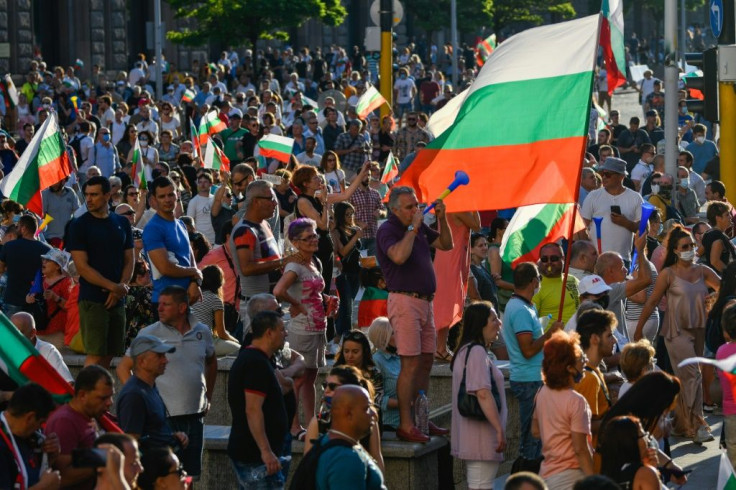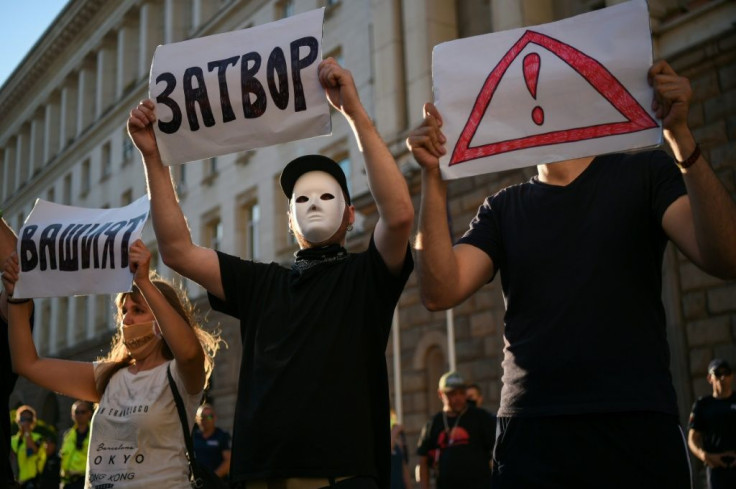Bulgarians Mark Three Weeks Of Anti-government Protests
Thousands of Bulgarians took to the streets of downtown Sofia on Wednesday, marking three weeks of nightly protests calling for the resignation of the conservative government of Prime Minister Boyko Borisov.
Over 5,000 people converged on the government headquarters shouting "Resign!", blowing vuvuzelas and waving Bulgarian flags.
Hundreds more walked for hours along a busy downtown boulevard that links the buildings of government, parliament, and one of Sofia's busiest downtown crossroads Eagles Bridge, effectively blocking all traffic.

Smaller protests were held in several other cities across the country but numbers failed to match the organisers' call for a nationwide mobilisation against Borisov.
Apart from resignation of the cabinet, the mostly young protesters are demanding the ousting of chief prosecutor Ivan Geshev, with many of the slogans at the rally accusing both of links with influential oligarchs.
"End the legal mafia" read one slogan carried by 18-year-old Dimitar Ivanov, who told AFP that he had participated in the rallies every evening since they started three weeks ago.

"We don't want to emigrate, we want to stay in Bulgaria and we can no longer put up with a government made up of incompetent puppets. We will keep up the pressure until something changes. We hope that Europe will hear us and help," Ivanov said.
Other slogans included: "Let's break up this mafia state", "We have a plan for the future and it does not include you",and "Resignation and fair elections".
"Borisov must resign, he has no place in the government any more," 30-year-old Ema Krumovska said, insisting that the prime ministers aims "to buy the next elections."
Borisov's third term in office is due to expire in March 2021 and he has said that he will complete it.
The protests began on July 10 after a prosecution raid on the offices of Socialists-backed President Rumen Radev, an outspoken critic of Borisov.
The raid was followed by several incidents exposing the government's protectionist policies against powerful oligarchs that brought public anger to boiling point.
Thirteen years after joining the EU as its poorest country, Bulgaria has also remained the bloc's most graft-prone member state, according to Transparency International's corruption perception index.





















